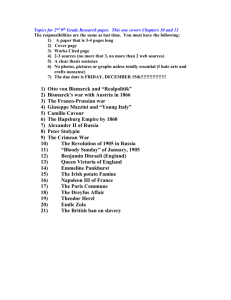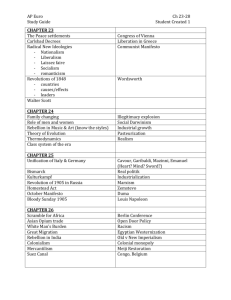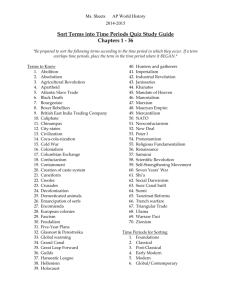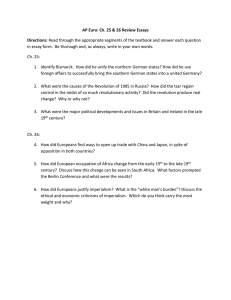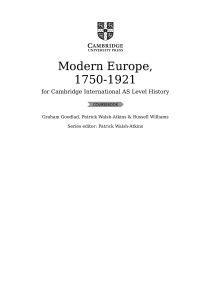Chapter 25 Practice Quiz Answers
advertisement
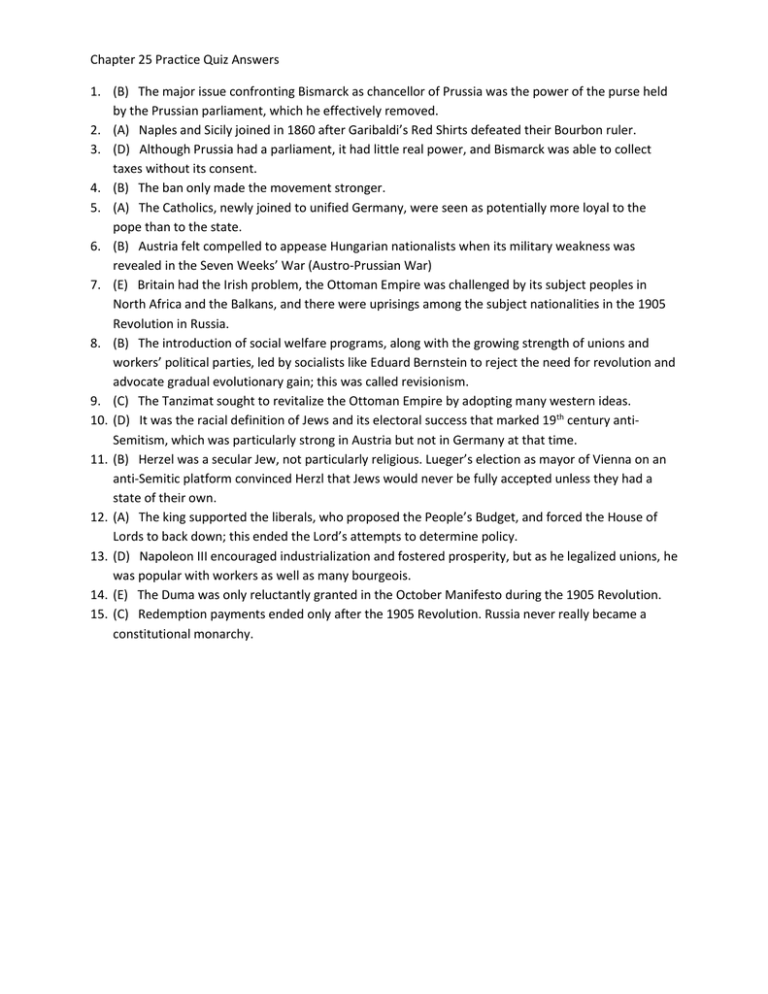
Chapter 25 Practice Quiz Answers 1. (B) The major issue confronting Bismarck as chancellor of Prussia was the power of the purse held by the Prussian parliament, which he effectively removed. 2. (A) Naples and Sicily joined in 1860 after Garibaldi’s Red Shirts defeated their Bourbon ruler. 3. (D) Although Prussia had a parliament, it had little real power, and Bismarck was able to collect taxes without its consent. 4. (B) The ban only made the movement stronger. 5. (A) The Catholics, newly joined to unified Germany, were seen as potentially more loyal to the pope than to the state. 6. (B) Austria felt compelled to appease Hungarian nationalists when its military weakness was revealed in the Seven Weeks’ War (Austro-Prussian War) 7. (E) Britain had the Irish problem, the Ottoman Empire was challenged by its subject peoples in North Africa and the Balkans, and there were uprisings among the subject nationalities in the 1905 Revolution in Russia. 8. (B) The introduction of social welfare programs, along with the growing strength of unions and workers’ political parties, led by socialists like Eduard Bernstein to reject the need for revolution and advocate gradual evolutionary gain; this was called revisionism. 9. (C) The Tanzimat sought to revitalize the Ottoman Empire by adopting many western ideas. 10. (D) It was the racial definition of Jews and its electoral success that marked 19th century antiSemitism, which was particularly strong in Austria but not in Germany at that time. 11. (B) Herzel was a secular Jew, not particularly religious. Lueger’s election as mayor of Vienna on an anti-Semitic platform convinced Herzl that Jews would never be fully accepted unless they had a state of their own. 12. (A) The king supported the liberals, who proposed the People’s Budget, and forced the House of Lords to back down; this ended the Lord’s attempts to determine policy. 13. (D) Napoleon III encouraged industrialization and fostered prosperity, but as he legalized unions, he was popular with workers as well as many bourgeois. 14. (E) The Duma was only reluctantly granted in the October Manifesto during the 1905 Revolution. 15. (C) Redemption payments ended only after the 1905 Revolution. Russia never really became a constitutional monarchy.
